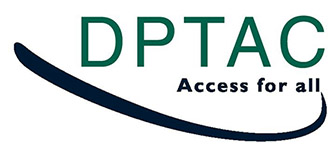DPTAC Main Committee meeting minutes 15 June 2021
Updated 18 March 2025
11am to 3pm, 15 June 2021, online.
Attendees
DPTAC: Keith Richards (Chair), Will Bee, Chris Price, Tanvi Vyas, Roger Mackett, Dave Partington, Matthew Smith, Mike Brace, Sharon Brennan, Niki Glazier, David Mapp, Helen Dolphin, Jessica Uguccioni.
Guests: Cabinet Office, Mobility and Access Committee for Scotland (MACS).
Introductory discussion
DPTAC Chair welcomed all to the meeting. Apologies noted for Sue Sharp and Bryan Matthews. The Chair requested disclosure of any conflicts of interest; Keith Richards is on the board of Transport Focus and Helen Dolphin works for Network Rail.
Cabinet Office provided update on National Strategy for Disabled People.
The William-Shapps Plan for Rail
DPTAC provided an overview of the accessibility content in the Williams-Shapps Plan for Rail. The Committee noted that the Plan for Rail commits to creating a new body, Great British Railways (GBR), that will own the infrastructure, receive the fare revenue, run and plan the network and set most fares and timetables.
GBR will be given a statutory duty to improve accessibility and implement a new accessibility strategy. The Committee discussed the need for senior leaders in the rail industry to have ownership of accessibility and for clarity on which body is responsible when a rail service isn’t provided to a customer.
The Committee noted that the Plan for Rail is an opportunity to significantly improve the accessibility of the rail network, however due to the scale of the changes proposed there are likely to be hurdles as the industry adapts.
Action: DPTAC Secretariat to provide clarification from the Rail Transformation Team on which organisation is responsible for failed services.
The Committee were updated by DfT officials on plans to carry out an accessibility audit of rail stations.
Action: DfT to share scoping document for rail station accessibility audit with DPTAC.
The Committee were updated by DfT officials on bid for funding to implement tactile paving and plans for new guidance on how to lay tactile paving.
The Committee noted that the many different wayfinding services for stations can cause inconsistencies for disabled people. DfT officials explained that wayfinding will be considered by a new policy working group on emerging technology.
REAL disability equality training
DfT gave a presentation on the REAL training package, including plans for marketing to operators and for monitoring and evaluation of the delivery by operators.
DPTAC commented: on the importance of feedback of how the packages have been used; that taxi drivers must be approached differently as most don’t operate under a large organisation; and that the REAL training could be linked to the ORR’s requirement for train operators to develop accessibility training for staff. Members noted that parking industry is not included.
Action: DfT to send copy of REAL training package to DPTAC
Action: DfT to explore feasibility of including parking industry in the scope of the REAL training package.
DfT updated the Committee on plans to create a Centre of Excellence to provide advice and support on equalities within DfT. PSED workshops have been rolled out to staff and this is monitored by a regular survey.
Action: DfT to provide an update on DfT staff equality initiatives to DPTAC.
Local transport accessibility
DfT explained how the Bus Strategy aims to increase passenger patronage, support decarbonisation, and contribute towards the levelling-up agenda. The Chair noted that DfT resource is important for delivering the Bus Strategy, and DfT provided an update on how Local Transport’s resource has expanded in the past year. The Committee noted that Local Authorities have a target to publish their bus service improvement plans by October and that DfT have published guidance to support development of these plans.
Action: DfT to share the department’s guidance for local authorities on Bus Service Improvement Plans.
The Committee discussed Public Service Vehicle Accessibility Regulations (PSVAR) and exemptions. The PSVAR review would be open in scope and there would be opportunities for bus and coach users to provide their views. The Chair advised considering bus and coach services separately within the review.
DPTAC priorities and strategy
The Chair explained that DPTAC is currently working on many different areas of transport policy and emphasised the importance of prioritising its advice in order to manage its workload.
Members noted that emerging technology impacts multiple modes and the importance that such technology is built with disabled people’s needs in mind. There are organisations, such as the Transport Systems Catapult, which DPTAC could engage with in order to understand future trends and technology.
Action: DPTAC to produce a position statement on emerging transport technology.
Action: Secretariat facilitate engagement between DPTAC and Transport Systems Catapult.
The Committee discussed the increasing use of e-scooters and noted a recent ministerial roundtable on e-scooters.
Action: Secretariat to facilitate engagement between DfT’s e-scooter team and DPTAC.
The Chair noted that the Local Travel and Rail Working Groups are working on many different workstreams due to the publication of the Bus Strategy and the Williams-Shapps Plan for Rail.
Any other business
The next meeting will be on 29 or 30 September.

